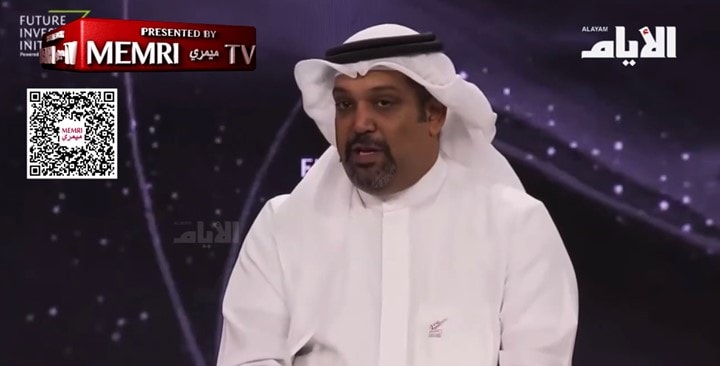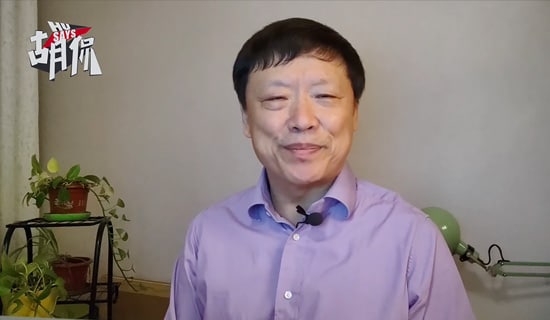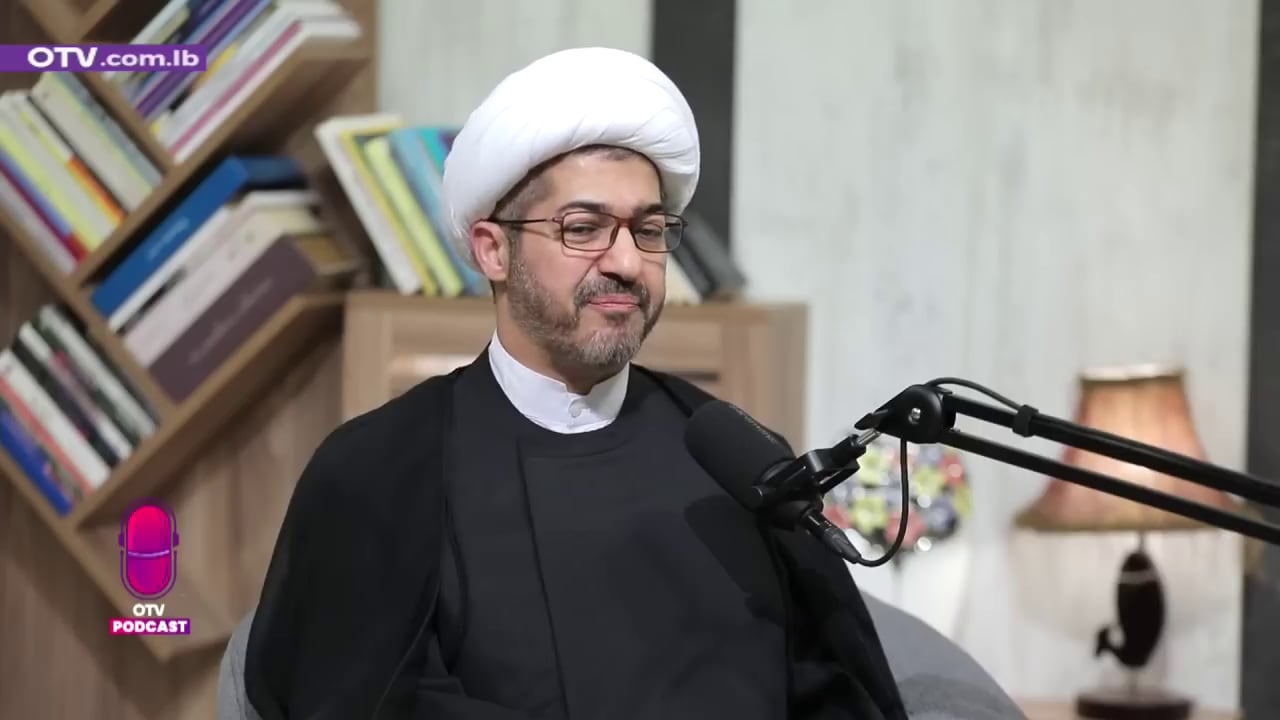
Bahraini Minister of Finance and National Economy Salman bin Khalifa Al Khalifa was asked about the Abraham Accords in a panel discussion posted on the YouTube channel of Al-Ayam Newspaper (Bahrain) on October 25, 2023. He said that it is "extremely important" to continue to build bridges in the region, and that the future and stability of the region relies on opportunity for all, and that is what "will underpin a secure and safe region." Al Khalifa said that he calls the traditional lines that have existed in the region "lines of previous generation," and one should look beyond ethnic and religious divisions. He said that the future belongs with those who seek to build the region, not those who "are looking to destroy it."

Interviewer: "Your Excellency, Bahrain was among the first signatories of the Abraham Accords though, so I would like your take on this, do you see this as a significant step back in regional efforts to build bridges across economies."
Salman bin Khalifa Al Khalifa: "It is extremely important in the region that we continue to build bridges and the future of this region, and its stability and its security is built on providing opportunity for all. And that is what will underpin a secure, safe region in which we are delivering prosperity for all and delivering hope and opportunity and that is what we need to continue to focus on.
"And the traditional lines that have existed, that have been lines of previous generations, I like to call them, those could be ethnic lines, those could be religious lines, are all now lines that we have not to look at but we have to look at a line between those who are looking forward to building and ensure those are the people that we are empowering and that they determine the future and on the other side of the line where there are people who are looking to destroy that they are not part of writing that future, the people who should write the future are the builders in the region and that is what we need to ensure we are empowering."
[…]
Interviewer: "Your Excellency, can you speak to that as well and how do we address the issue of economic fragmentation?"
Al Khalifa: "Thank you and I think I'll point to an op-ed written by his excellency Minister Al-Jadaan in which he said we have to tend the garden of multilateralism and that stuck in my mind and when we look at the multilateral institutions, framework that we have today it is really a construct of coming out of WWII that is biological backbone of the global multilateral institutional framework, it's always important to ensure that we are updating that framework to ensure that is relevant not only to the challenges but also to the opportunities of each decade and that is a constant process.
"I mentioned to Chrislina, I think we are in the sphere of finance so I think it is much more straightforward job we have in terms of the multilateral financial institutions and updating them. It's much more difficult when we look at other multilateral institutions globally, they have a much larger challenge in terms of ensuring that they get that done but ensuring that we have that relevancies is important and different challenges emerge and as policymakers at the international level, at the country level.
"You know, we have to focus everything on delivery, you have the best laid plans sitting on the shelves of government entities all over the world. You have the best ideas sitting in the brains of entrepreneurs all over the world, actually getting those plans, those studies off the shelf of ministry X or ministry Y wherever it is in the world and turning into a project that seize the light of day is the policy challenge. And with the private sector getting it from the heads of executives, entrepreneurs, idea-makers, the ideas are there, getting them and translating them to reality is the challenge. And we need the multilateral institutions to play a positive role in that daily process that we have to do around the world."
Mohammed Al-Jadaan: "Can I add to his Excellency? I think you also need two things, you need stable government, that takes long-term fuel and bold leaders who are able to take difficult decisions."
Al Khalifa: "Absolutely".
Al-Jadaan: "Those are two I think you would see success. And we are seeing it clearly not because it was easy because we had to take bold decisions and you had to take long-term fuel on things. I think the same applies across…"













